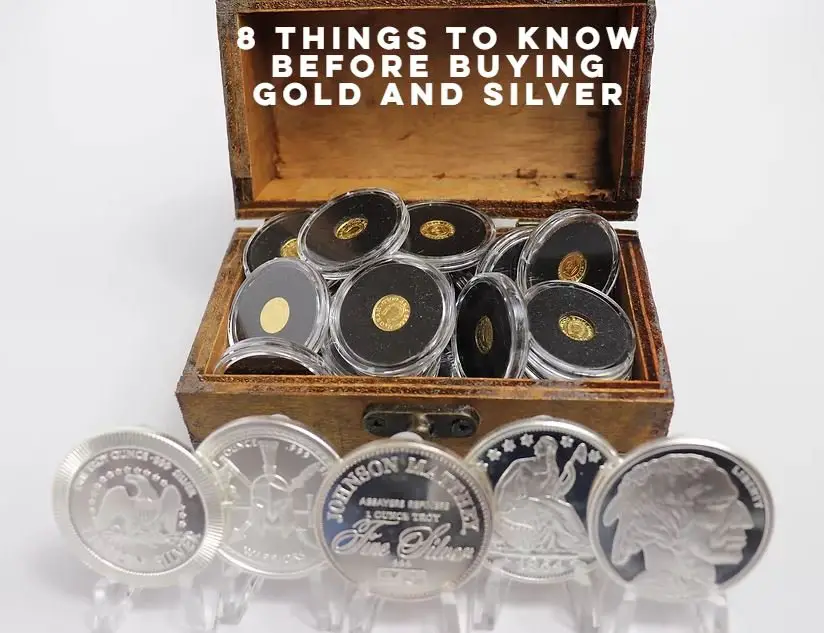Financing a boat purchase can often feel like navigating uncharted waters. But fear not, we’ve got you covered with some tips to make the process smooth sailing. Whether you’re a first-time buyer or a seasoned boating enthusiast, these tips for financing a boat purchase will help you set sail with confidence. From understanding loan options to evaluating your budget, we’ll guide you through each step of the way. So, grab your life jacket and let’s dive into the world of boat financing.
Tips for Financing a Boat Purchase
When it comes to purchasing a boat, financing is often a necessity for many people. Whether you’re a seasoned sailor or a first-time boat buyer, understanding the ins and outs of boat financing can help you make the best financial decisions and ensure a smooth purchasing process. In this article, we will explore a variety of tips for financing a boat purchase to help you navigate the waters of boat financing confidently.
1. Determine Your Budget
Before diving into the world of boat financing, it’s crucial to have a clear understanding of your budget. Consider the following factors when determining how much you can afford for your boat purchase:
- Your monthly income and expenses
- Your existing debts and financial commitments
- The down payment you can comfortably afford
- The ongoing costs of boat ownership, including insurance, maintenance, and docking fees
By evaluating your financial situation and setting a realistic budget, you can avoid overextending yourself and ensure that your boat purchase remains an enjoyable experience.
2. Explore Financing Options
Once you have a budget in mind, it’s time to explore your financing options. There are several avenues you can consider when financing a boat purchase:
- Marine Lenders: Many financial institutions specialize in boat loans. These lenders understand the unique aspects of boat financing and can offer competitive rates.
- Banks and Credit Unions: Traditional banks and credit unions also provide boat loans. It’s worth checking with your existing financial institution to see if they offer competitive rates and terms.
- Dealer Financing: Some boat dealerships offer in-house financing options. While convenient, it’s essential to compare their rates and terms with other lenders to ensure you’re getting the best deal.
- Personal Loans: Depending on your creditworthiness and financial situation, a personal loan from a bank or online lender may be an option. However, personal loans typically have higher interest rates compared to boat-specific loans.
- Home Equity Loans: If you own a home, a home equity loan or line of credit may provide a lower interest rate option for financing your boat purchase. However, keep in mind that using your home as collateral adds an additional level of risk.
Take the time to research and compare interest rates, loan terms, and repayment options from different lenders to find the most suitable financing option for your needs.
3. Check Your Credit Score
Your credit score plays a crucial role in securing favorable financing terms. Before applying for a boat loan, it’s wise to check your credit score and address any issues that may negatively impact your creditworthiness. Here are some tips for improving your credit score:
- Pay your bills on time: Late payments can significantly impact your credit score. Set up automatic payments or reminders to ensure you never miss a payment.
- Reduce your debt-to-income ratio: Paying down existing debts can improve your creditworthiness.
- Keep balances low: Aim to keep your credit card balances below 30% of your available credit limit.
- Avoid opening new credit accounts before applying for a boat loan: Multiple recent credit inquiries can temporarily lower your credit score.
By taking steps to improve your credit score, you can increase your chances of securing a favorable boat loan with lower interest rates.
4. Understand Loan Terms and Conditions
As with any financial agreement, it’s essential to thoroughly understand the loan terms and conditions before signing on the dotted line. Some key factors to consider include:
- Interest rate: The interest rate will determine the cost of borrowing. Compare rates from different lenders to ensure you’re getting a competitive rate.
- Loan duration: How long will you have to repay the loan? Longer loan terms may result in lower monthly payments but can cost more in interest over time.
- Down payment requirements: Some lenders may require a specific down payment percentage. Make sure you have the necessary funds available.
- Penalties and fees: Read the fine print to understand any potential penalties or fees associated with the loan.
- Insurance requirements: Many lenders require boat owners to carry insurance. Familiarize yourself with the insurance requirements to include them in your budget.
Carefully reviewing and comparing loan terms and conditions will help you make an informed decision and avoid any surprises down the line.
5. Get Pre-Approved for a Loan
Before starting your boat shopping journey, consider getting pre-approved for a boat loan. Pre-approval provides several advantages:
- You’ll know your budget: Pre-approval gives you a clear understanding of how much you can afford to spend on a boat.
- Negotiation power: Sellers are more likely to take you seriously as a potential buyer if you have pre-approved financing.
- Streamlined purchasing process: With pre-approval in hand, you can expedite the purchasing process and close the deal faster.
To get pre-approved, you’ll typically need to provide the lender with your financial information, such as income, credit score, and employment details. Once pre-approved, you can confidently search for a boat within your budget.
6. Consider a Co-Signer
If you have a less-than-perfect credit history or income that doesn’t meet the lender’s requirements, having a co-signer may improve your chances of securing a boat loan. A co-signer is someone with a strong credit profile who agrees to be responsible for the loan if you default on payments. Keep in mind that your co-signer will also be equally responsible for making payments, so it’s crucial to maintain open communication and fulfill your obligations.
7. Evaluate Insurance Options
Insurance is an essential aspect of boat ownership, and many lenders require proof of insurance before finalizing the loan. Take the time to research and evaluate different insurance options to find the coverage that best suits your needs and budget. Consider factors such as coverage limits, deductibles, liability protection, and specialized coverage for unique circumstances like hurricane protection or towing assistance.
8. Review Tax Implications
Before making your boat purchase, it’s essential to understand any tax implications that may arise. Depending on your location and local tax laws, you may be subject to sales tax, use tax, or personal property tax on your boat. Research the tax regulations in your area and factor in these costs when budgeting for your boat purchase.
9. Protect Your Investment
Once you’ve successfully financed your boat purchase, it’s crucial to protect your investment. Regular maintenance, proper storage, and responsible boating practices can prolong the life of your boat and maximize its resale value. Additionally, consider purchasing an extended warranty to provide additional coverage for unexpected repairs and protect your finances from expensive repair bills.
10. Monitor Your Loan and Refinancing Options
After securing a boat loan, it’s important to stay vigilant and monitor your loan regularly. Keep track of your payment schedule, ensure payments are made on time, and maintain open communication with your lender. Additionally, as interest rates fluctuate over time, consider monitoring the market for potential refinancing opportunities. Refinancing your boat loan can help you secure more favorable interest rates or adjust your loan terms to better suit your evolving financial situation.
By following these tips for financing a boat purchase, you’ll be well-equipped to navigate the world of boat financing and make an informed decision that aligns with your budget and lifestyle. Remember, responsible financial planning and thorough research are the keys to a successful boat purchase and an enjoyable boating experience.
FAQ's About Financing A Boat | Pro Boating Tips, Tricks, & How-To's
Frequently Asked Questions
Frequently Asked Questions (FAQs)
Q1: What are some tips for financing a boat purchase?
A1: When financing a boat purchase, consider the following tips:
- Research and compare interest rates from different lenders.
- Check your credit score and improve it if necessary.
- Save for a down payment to reduce the loan amount.
- Calculate your budget and ensure you can comfortably afford the monthly payments.
- Explore different loan terms and choose the one that fits your financial situation.
- Consider getting pre-approved for a loan to have a better bargaining position.
- Review all financing options, such as traditional banks, credit unions, and online lenders.
- Read and understand the terms and conditions of the loan before signing any agreement.
Q2: How can I find the best interest rate for financing a boat?
A2: To find the best interest rate for financing a boat, you should:
- Shop around and compare rates from different lenders, including banks, credit unions, and online lenders.
- Check your credit score and work on improving it if necessary, as a higher score can help you secure a better interest rate.
- Consider using a loan broker who can help you connect with multiple lenders and find competitive rates.
- Ask for quotes and loan estimates from several lenders to compare their offers.
- Negotiate with lenders to see if they can match or beat the rates you have received from other institutions.
Q3: Is it necessary to have a down payment when financing a boat purchase?
A3: While it may not be necessary to have a down payment, it is generally recommended. Having a down payment can help reduce the loan amount and the overall interest costs. It also shows the lender that you are financially responsible and committed to the purchase. Additionally, a down payment may increase your chances of getting approved for a loan and improve the terms and conditions offered by the lender.
Q4: Can I finance a used boat?
A4: Yes, you can finance a used boat. Many lenders offer financing options for both new and used boats. However, keep in mind that the interest rates and loan terms may vary for used boats compared to new ones. It is important to research and compare different lenders to find the best financing options for the specific used boat you are interested in purchasing.
Q5: How does my credit score affect boat financing?
A5: Your credit score plays a significant role in boat financing. A higher credit score demonstrates your creditworthiness and can help you secure better interest rates and loan terms. Lenders often consider credit scores to assess the risk of lending money. It is advisable to check your credit score before applying for a loan and take steps to improve it if necessary, such as paying bills on time, reducing credit card balances, and addressing any errors on your credit report.
Q6: What factors determine the loan term for boat financing?
A6: Several factors can influence the loan term for boat financing, including:
- The loan amount: A larger loan amount may require a longer repayment period.
- Your financial situation: Lenders consider your income, debt-to-income ratio, and other financial obligations in determining the appropriate loan term.
- The age and type of boat: Some lenders may offer different loan terms based on the age and type of boat you are purchasing.
- Your creditworthiness: A strong credit history and higher credit score may provide more flexibility in choosing the loan term.
Q7: Can I get pre-approved for boat financing?
A7: Yes, you can get pre-approved for boat financing, and it is often recommended. Pre-approval provides you with an estimate of how much you can borrow and allows you to negotiate with the seller from a position of strength. Pre-approval typically involves a lender reviewing your credit history, income, and other financial factors to determine the loan amount and terms you qualify for. It can save time during the actual purchase process and give you a clear idea of your budget.
Q8: What should I look for in the terms and conditions of a boat loan?
A8: When reviewing the terms and conditions of a boat loan, consider the following:
- Interest rate: Understand the rate and whether it is fixed or variable.
- Loan term: Determine the duration of the loan and the associated monthly payments.
- Prepayment penalties: Check if there are penalties for paying off the loan early.
- Additional fees: Be aware of any origination fees, closing costs, or other charges.
- Insurance requirements: Verify if the lender requires specific insurance coverage for the boat.
- Default consequences: Understand the possible repercussions and actions the lender can take if you default on the loan.
- Loan modifications: Inquire about options for refinancing or modifying the loan in the future.
Final Thoughts
In conclusion, when it comes to financing a boat purchase, there are several essential tips to keep in mind. First, meticulously assess your financial situation and determine a realistic budget. Second, research different financing options and compare interest rates and terms. Third, consider getting pre-approved for a loan to increase your negotiating power. Fourth, take into account additional costs such as insurance, maintenance, and docking fees. Lastly, carefully review the terms and conditions of your loan agreement before signing. By following these tips for financing a boat purchase, you can ensure a smooth and successful transaction without any financial setbacks.



